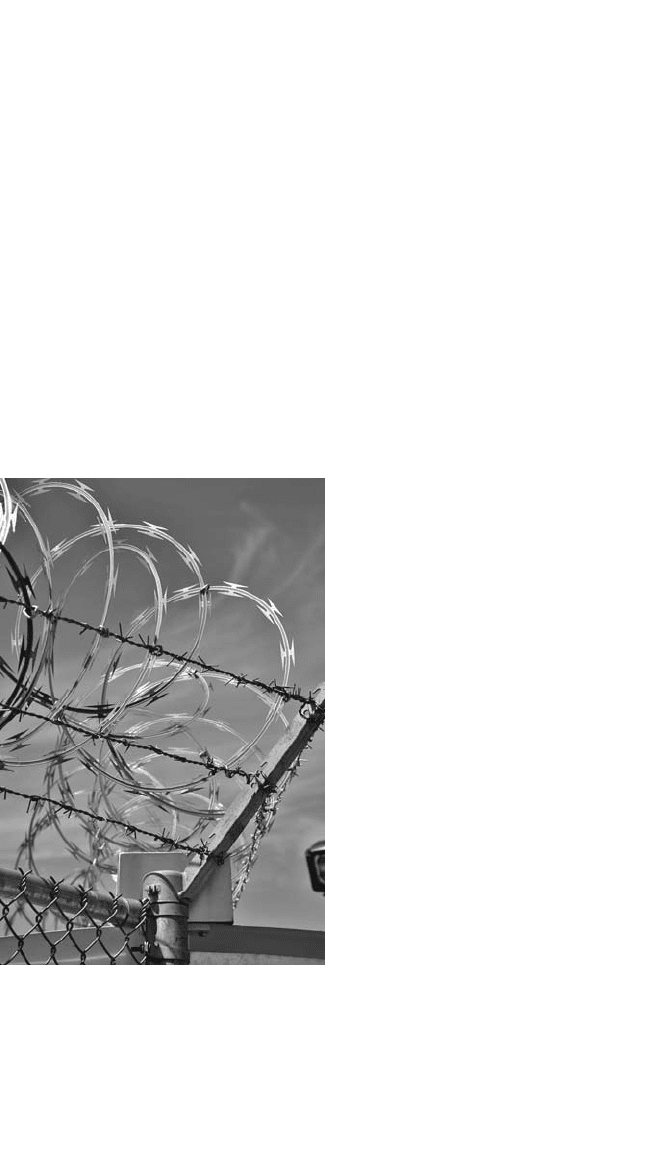West B.A., Murphy F.T. A Brief History of Australia
Подождите немного. Документ загружается.


A BRIEF HISTORY OF AUSTRALIA
220
and privatization. Her first speech in Parliament made Hanson a star, at
least temporarily, as pundits, academics, and politicians argued whether
or not her racist diatribe deserved recognition as an accurate reflection
of the state of the nation. As a result of this coverage, the Australian
author Donald Home has said that “Pauline Hanson’s speech in 1996
may have been the most effective maiden speech ever made in the
Australian parliament” (cited in Economist 2001, 14).
Many in Australia were horrified at the racist, xenophobic content
of the speech. Parliament censured Hanson on an almost unanimous
vote, but, just a month later, John Howard himself began the process
of absorbing some of her views into the Liberal mainstream. He said, “I
thought some of the things she said were an accurate reflection of what
people feel” (cited in Murphy 2002). At the same time, Hanson herself
maintained an antipathy for the Liberal Party that had dropped her in
1996. Even after losing her own seat in 1998, her political party, One
Nation, which she formed in 1997, continued to contest seats in rural
regions throughout Australia by running against the more traditional
conservative candidates from the Liberal and National Parties. In 1998
One Nation took 11 seats in Queensland’s unicameral parliament and
frightened the coalition into absorbing even more of her ideas into its
own platform. Three years later One Nation held just three Queensland
seats but captured nearly a fifth of the vote in some rural areas of
Western Australia and in so doing delivered the election to Labor.
Hanson was vindicated and claimed that “the results showed ‘people
are fed up with Johnny Howard’ ” (cited in Economist 2001, 14).
It is hard to believe, however, with the benefit of hindsight, that
Howard was fed up with Hanson, or at least some of her ideas. For it
was Howard who first pushed the Liberal Party to disavow multicultur-
alism and later used many of the issues Hanson had raised in her maiden
speech to retain his hold on the Australian government. As framed by
his political opponent Michael Danby, Labor MP for Melbourne Ports:
Hanson said that ATSIC [the Australian and Torres Strait
Islander Commission] should be abolished—Howard abolished
ATSIC. Hanson said that native title should be restricted—
Howard gutted the Native Title Act. Hanson said that immigra-
tion should be restricted—Howard gave us the Pacif ic Solution
and the Cornelia Rau and Vivian Solon [immigration] scandals.
(cited in Kohn 2006)
This same process has been called in a more neutral analysis John
Howard’s “embracing [of] a brand of what looks like ‘soft Hansonism’ ”

221
THE HOWARD YEARS
and “flirting with Mrs Hanson’s ideas as a means of accommodating the
politically disenchanted” (Economist 2001, 14).
While the fear and loathing Hanson unleashed were drawn into the
mainstream in Australia over the next decade, she herself could not
maintain her early momentum. After losing her parliamentary seat in
1998, Hanson continued to campaign for One Nation. By 2001, how-
ever, the support she had garnered by speaking out against Aboriginal
funding, immigration, and other issues had withered away with the
Liberals’ adoption of these policies. In 2003 Hanson reentered electoral
politics and ran for the Senate as an independent and lost. In 2007 she
created a new political party, Pauline’s United Australia Party, to contest
one of Queensland’s Senate seats, losing again. In 2009 again as an inde-
pendent, Hanson tried to win a seat in Queensland’s state parliament
and failed. Between her runs for political office, Hanson kept herself in
the media spotlight in 2004 with a season on Dancing with the Stars,
where she finished second, and in 2007 published her autobiography,
Untamed and Unashamed: Time to Explain.
Refusing Refugees
While the steady creep of the Liberal Party toward positions held by
One Nation remained somewhat muted in John Howard’s first two
terms as prime minister, as the 2001 election neared it became much
more obvious. In March 2001 the coalition trailed behind Labor by
nearly 20 percentage points (Clarke 2003, 374), enough to deliver the
government to the Labor leader, Kim Beazley, with a landslide margin.
Broken election promises on GST and cleaning up government corrup-
tion, as well as failed leadership on Aboriginal issues and formation
of a republic, all contributed to widespread rejection of the Liberals
and Nationals. Nevertheless, by the time of the election in November
all of these issues had disappeared when John Howard’s Hanson-like
response to several refugee crises won back his frightened “battler”
constituency. Fear and loathing had proved to be election winners, and
Howard skillfully took advantage of the opportunities he was handed
to stir up both of these emotions.
The first incident took place in late August when a Norwegian con-
tainer ship, Tampa, rescued 433 Middle Eastern asylum seekers from
a sinking people-smuggling ship in the Indian Ocean. As dictated by
international law, the captain of the ship made for the nearest port,
Australia’s Christmas Island, and tried to land. He was prevented from
doing so when members of the Australian Special Air Services illegally

A BRIEF HISTORY OF AUSTRALIA
222
commandeered the ship and took it to the island nation of Nauru,
a former Australian colony whose economy had collapsed when its
phosphate reserves were exhausted in 2000. This was the first action in
what eventually became known as the “Pacific Solution” to the arrival
of refugees on Australia’s outer shores.
One month after the Tampa incident, the government, with Labor
support, passed the “Migration Amendment (Excision from Migration
Zone) Bill 2001, [which] amended the Migration Act 1958 to excise
Christmas, Ashmore, Cartier and Cocos (Keeling) Islands from the
migration zone. As a result, any unlawful non-citizen attempting to
enter Australia via one of these islands [was] now prevented from
making an application for a protection visa” and instead had to await
processing in a detention center on Nauru or Manus Island, New
Guinea (Phillips and Millbank 2003). Nauru was paid more than
AU$30 million in rent for the first two years of the solution; by the
time it was abolished in 2005,
more than AU$1 billion had
been spent on the illegal,
inhumane system.
While the Howard govern-
ment’s actions over the Tampa
incident breached interna-
tional law and were consid-
ered “shameful” by Australia’s
own human rights ombuds-
man (Welsh 2004, 566), they
were politically popular. Many
Australians had been dis-
mayed for years at the actions
of a very small minority of
first- and second-generation
Muslim migrants, who “stood
accused of a long list of anti-
social behaviours,” including
drug dealing, violence, and
rape (Clarke 2003, 375). As a
result, 77 percent of Australians
supported Howard’s actions
(Kelly 2001). Even the Labor
Party eventually supported
the Pacific Solution in the
Refugee claimants must await their processing
in Australia behind fences and razor wire in
detention centers, far from friends and com-
munity support and often with little regard for
their health and mental well-being.
(A Turner/
Shutterstock)

223
THE HOWARD YEARS
Senate, despite its many legal flaws, leaving the Democrats and Greens
as the sole voices of opposition. Even at the time, the Australian media
began to talk about how these political victories may have improved
the coalition’s chances of pulling out an impossible electoral win later
in the year (Kelly 2001).
While the Tampa incident began the political revival of the Liberals
in 2001, the falsified “children overboard” case in October helped to
seal the deal. The situation was very similar to the Tampa case: Muslim
Iraqis were caught by the Australian military in their attempt to land
on an Australian offshore island and request asylum. Twenty-four hours
after the refugees had been approached by the HMS Adelaide and their
ship had begun to sink, photographs of people in life jackets were taken
and broadcast throughout Australia with commentary by Howard’s
minister of defense, Peter Reith, claiming that “the desperate survivors
had demonstrated their barbarity by throwing children into the water”
(Welsh 2004, 566–567). Officers on the Adelaide immediately contra-
dicted the claim and later documents have proven that “the Australian
Defence Force (ADF), Australian Public Service (APS) and even the
office of the Defence Minister knew the incident had not occurred”
(Herd 2006). Nonetheless, the Howard government refused to recant
on the children overboard claim, and, in the climate of fear and loath-
ing already whipped up by Hanson, Howard, and their supporters, the
accusation stuck and helped support both the Pacific Solution and the
Liberal election campaign.
Of course, while they had nothing at all to do with Australia or
its immigration policies, the terrorist attacks on the United States in
September 2001 served as perhaps the final nail in the coffin for Labor in
November 2001. John Howard’s statements against multiculturalism and
overt actions against the unauthorized arrival of Muslims on Australia’s
shores seemed to be justified in the context of the international situation.
For many Australians, this entirely unrelated incident, halfway around
the world, validated Hanson and Howard’s “leadership” in working
toward limiting Asian and Muslim immigration at home. The result was
that John Howard “swept in on coded racism in 2001” and kept himself
in power for six more years using the same tactics (Jupp 2005, 173).
War on Terror Comes Home
Just one month after the September 11 terrorist attacks, the United
States invaded Afghanistan in an attempt to rout out Osama bin Laden
and his supporters. In December that year David Hicks, a young
Australian who had converted to Islam after a trip to Albania in 1999,

A BRIEF HISTORY OF AUSTRALIA
224
was captured in Afghanistan by Northern Alliance forces, along with
many other Taliban fighters, and held in a local jail. In January 2002
Hicks was transported to Guantánamo Bay, Cuba, and held there for
more than five years, often in solitary confinement. In the meantime,
several citizens of U.S. allies Spain, Sweden, and Britain who were being
held at Guantánamo were released when their governments negotiated
on their behalf. Hicks and his fellow Australian detainee Mamdouh
Habib, however, remained at the mercy of the flawed U.S. military jus-
tice system for years when the Howard government refused to intervene
on their behalf. Habib was finally released without charge after three
years of detention and torture at Guantánamo, including being tied up
MaMdouh habib
M
amdouh Habib was born and raised in Egypt but spent much
of his early adulthood traveling the world, working in such
diverse places as Jordan, Turkey, Italy, and Bulgaria. In 1982 he settled
in Sydney, married, and was granted Australian citizenship. Until 2001
he ran his own cleaning business to support his wife and growing
family.
The Habibs’ quiet life changed in 1993 when the Australian Security
Information Organisation (ASIO) began harassing him on suspected
connection to the World Trade Center bombing that year. The harass-
ment continued after the 2001 attacks in the United States, when agents
tried to induce Habib to spy on other Australians during a business trip
he took to Egypt and Dubai. Habib did not cooperate and continued
his trip through the Middle East. The trip, however, ended in disaster
when a Saudi companion was killed while the two were in Pakistan and
Habib, not knowing where to turn, escaped to Afghanistan. After hear-
ing about the September 11 attacks in the United States, Habib called
his wife in Australia to ask about the events and subsequently tried to
reenter Pakistan. After this call, his family home was searched by ASIO
officials and he was arrested by U.S. drug enforcement agents on a bus
as he tried to cross the Afghan-Pakistani border.
In the nearly 40-month period of Habib’s capture, he was first
hooded and tortured in Pakistan, while being questioned by both
ASIO and the Australian Federal Police (Taylor 2005). He was then
“kidnapped by the US and sent to Egypt under the CIA’s rendition
program” (O’Brien 2008). He remained in Egypt for five months and
claims that at this time “he was drugged and tortured with electric

225
THE HOWARD YEARS
while a prostitute menstruated on him and being told his family had
been killed (Sydney Morning Herald 2005c).
David Hicks’s case was an even greater travesty than that of Habib
for the length of time he was held. It was also particularly troubling for
many Australians because even his U.S. Marine lawyer, Major Michael
Mori, found his client’s treatment by the American and Australian
governments to be unjust. Hicks was held for two and a half years
and repeatedly tortured (Sydney Morning Herald 2004) before the U.S.
government even charged him with a crime. Two years later in June
2006, the U.S. Supreme Court ruled that the military commission that
would have tried Hicks for conspiracy, attempted murder, and aiding
shocks, was threatened with sexual attacks by dogs and hung by his
feet and beaten” (O’Brien 2008).
After months of torture at the hands of the Egyptians, Habib was
returned to the Americans and taken to Guantanamo Bay, Cuba, where
his incarceration continued for a further two and a half years. During
this period Australian officials from ASIO, the Federal Police, and the
Department of Foreign Affairs and Trade questioned Habib; American
officials also continued their interrogations. Finally, after having laid no
charges against Habib or finding any evidence of participation or collu-
sion in terrorist activities, Habib was released in January 2005.
Habib returned to Australia a broken man, having missed out on
years of his children’s upbringing and the support of his wife and siblings.
Despite the complete lack of evidence for any wrongdoing and the years
of abuse and detention, Habib was greeted back in Australia by the news
that Prime Minister Howard was refusing to issue an apology or pay
compensation and that Attorney-General Philip Ruddock was seeking to
prevent him from selling his story. Habib’s passport was cancelled and he
remained a “security interest” in Australia. Despite the challenges, Habib
published his story in 2008 and continues to seek compensation from
the U.S. and Australian governments for his mistreatment.
Sources: Taylor, Stephen. “Transcript of Interview with Ex-Guantanamo Bay
Detainee Mamdouh Habib.” Broadcast on February 13, 2005, Channel 9,
60 minutes. Available online. URL: http://freedetainees.org/924. Accessed
May 8, 2009; O’Brien, Natalie. “Voyage to the Darkest Side for Mamdouh
Habib.” Australian, October 25, 2008. Available online. URL: http://www.
theaustralian.news.com.au/story/ 0,25197,24547702-5001561,00.html.
Accessed May 8, 2009.

A BRIEF HISTORY OF AUSTRALIA
226
the enemy was itself illegal. And so Hicks remained in solitary con-
finement, where he had been since March 2006, without an end to his
imprisonment in sight.
In November 2006 nearly five years after his capture, Amnesty
International also took up Hicks’s case, and a month later thousands of
Australians marched in the country’s major cities in an attempt to force
the Howard government to intervene on Hicks’s behalf. Nonetheless,
despite the international and domestic furor caused by his jailing,
neither the Howard nor the Bush governments would act to right the
wrongs done to Hicks (Age multimedia). Finally, in March 2007 Hicks
pleaded guilty to terrorism charges before a U.S. military commission
and was sentenced to seven years’ prison, with all but nine months of
the sentence suspended. Not long after, Hicks was returned to Adelaide,
South Australia, where he served the remaining months of his sentence
at Yatala prison.
According to Hicks’s father, Terry Hicks, the Australian Greens sena-
tor Bob Brown, and the Amnesty International Australia spokesperson
Katie Wood, the terms of Hicks’s release illustrate the unfair nature of
the entire affair. As part of the conditions of his release, Hicks was not
allowed to discuss his imprisonment for a year nor pursue any of his
prior claims of torture or illegal imprisonment against the U.S. govern-
ment. To Brown and many other of Hicks’s supporters, these terms
seemed to reflect an agreement between the Bush and Howard govern-
ments to keep Hicks quiet until after the November 2007 Australian
federal elections. While Wood and Amnesty International were also
concerned with the Howard government’s having “wholeheartedly
abandoned one of its own citizens to an unfair process,” they were
largely critical of the apparent disregard for Hicks’s human rights (Age
multimedia). “If he can’t pursue allegations of torture and other ill
treatment and can’t also talk about his experience in Guantánamo Bay,
then this basically means that human rights scrutiny can’t be made to
what happened to him” (Age multimedia).
Despite the fact that he was not convicted of any crime in his home
country, immediately upon his release from Yatala in December 2007,
Hicks was placed under a one-year control order by the Australian
Federal Police, which allowed officials to keep a close eye on him. The
order was lifted a year later, and David Hicks, who had abandoned his
Muslim faith, was allowed to reintegrate into Australian society.
David Hicks and Mamdouh Habib were not the only Australians to
suffer loss of rights and freedoms in the international war on terror and
the domestic climate of fear. In 2001 the Melbourne taxi driver “Jihad”

227
THE HOWARD YEARS
Jack Thomas took his family to Afghanistan, where the Muslim convert
is said to have trained with al-Qaeda and been instructed to return to
Australia to commit terrorist acts. Thomas was captured in Pakistan in
2003, questioned and allegedly tortured by the Pakistani authorities,
and later interviewed by Americans and the Australian Federal Police,
who denied him the right to have his lawyer present (Neighbour 2006).
During his five months of detention in Pakistan, Thomas confessed to
training with al-Qaeda and to the plan for setting up a terrorist cell at
home. However, his confession was disallowed in Australian courts,
because of lack of due process and legal representation, and Thomas
was returned to Australia in June 2003. For the next 17 months
Thomas resumed his life in Australia, living quietly in a Melbourne
suburb and working three jobs to support his Indonesian wife and two
children (Neighbour 2006).
Despite the evidence that Thomas had fully reintegrated into
Australian society and his own claims that he had confessed merely
to end his detention and mistreatment, the Australian Federal Police
raided the Thomas home in November 2004 and arrested him for
events related to his arrest in Pakistan years earlier. He was later found
not guilty on two serious terrorism-related charges, but guilty of trav-
eling on a falsified passport and of receiving funds from a terrorist
organization (Neighbour 2006). Thomas was sentenced to five years
in prison but was released just a few months later, after successfully
appealing his conviction.
Thomas was then placed on a control order, which set a midnight
curfew and allowed him to make phone calls only with police permis-
sion, despite having his conviction overturned and not having broken
any Australian laws during his time in Afghanistan and Pakistan.
According to the circular logic of Philip Ruddock, the Howard govern-
ment’s attorney general at the time, the lack of conviction should not
matter because “if you work on the assumption that only those people
who could be convicted of an offence could be the subject of a control
order, you wouldn’t have control orders” (ABC News Online 2006).
The government followed the control order with a second trial, on the
same terrorism charges that had been successfully appealed just a few
months earlier. Thomas was found guilty only of falsifying his passport,
sentenced to nine months imprisonment, but was spared from having
to serve any extra time because of the long period of his legal ordeal.
After more than six years of torture, uncertainty, and government
harassment, Thomas walked out of court a free man on October 29,
2008. Nevertheless, the antiterrorism laws that the Howard government

A BRIEF HISTORY OF AUSTRALIA
228
rushed through the Parliament, which allowed these control orders to
be placed on people who had not been convicted of a crime, remain in
place to this day.
While Hicks and Thomas were Australian citizens by birth and
entered conflict with the Howard government because they associated
with a Muslim military organization, a third case illustrates the extent
to which the Hanson-Howard climate of fear had taken over Australia
in the post-2001 period. In July 2007 a Muslim Indian doctor who had
been working in Australia, Mohammad Haneef, was arrested at the
Brisbane, Queensland, airport and held without charge for 12 days on
suspicion of having participated in the 2007 bomb attack at Glasgow
airport. The evidence presented for the arrest was that Haneef is related
to one of the Glasgow bombers, he left one of them his cell phone SIM
card when he left Britain, and he was attempting to leave Australia on
a one-way ticket. His explanation for the ticket, which was supported
by his family’s circumstances, was that he did not have the funds to
purchase a return ticket at the time and was returning to India to visit
his wife and newborn daughter, who was born by cesarean section and
was suffering from jaundice. His father-in-law was going to purchase
tickets for the entire family to return to Australia.
After nearly two months of legal limbo, the case against Haneef was
dropped for lack of evidence. But the Howard government was not sat-
isfied and cancelled the doctor’s visa. The cancellation was later found
to have been illegal and Haneef’s visa was reinstated in August 2007.
As a sign of their respect for the man and his work, the Gold Coast,
Queensland, hospital where Haneef had been working at the time of his
arrest offered him a permanent position. In 2008, the Clarke Inquiry
looked into one legality of the Federal Police (AFP) and government
actions in the Haneef case and found their case significantly lacking
(Clarke 2008).
Abrogating Aboriginal Rights
While the Howard government opposed Labor on multiculturalism
and immigration, a third area of Labor policy prior to 1996 also came
under fire after 1996: reconciliation with Australia’s Aboriginal people.
According to Will Sanders, a specialist in Aboriginal economic affairs,
“John Howard, as Prime Minister, has never even been adequate” in
the areas of reconciliation and Indigenous affairs (2005, 152). After
the Mabo case and the passage of even the watered-down Native Title
Act, many Australian pastoralists became fearful that they would lose

229
THE HOWARD YEARS
access to the nearly 42 percent of the continent covered by grazing
leases (Northern Land Council 2003a). A December 1996 judgment by
Australia’s High Court in Wik Peoples v. the State of Queensland (Wik)
added to that fear, which John Howard exacerbated with his comment
that “the pendulum had swung too far towards Aborigines and had to
be reset” (cited in Clarke 2003, 364).
The decision that so frightened pastoralists and mining companies
was that “a leasehold grant did not necessarily extinguish native title”
(Welsh 2004, 559). At the same time, the judges determined that in
the situation of coexistence of title, pastoralists’ rights would take
precedence over those of Aboriginal peoples (Northern Land Council
2003a). In other words, the court had handed down a symbolic victory
for Aboriginal people and given them the right to take their claims to
court, but in fact very little would change. Nonetheless, the Howard
government vowed to “reset” the pendulum and take away even the
symbolic victories gained by Aboriginal people. It did so with its “ten
point plan” and subsequent Native Title Amendment Act 1998, which
effectively stripped Aboriginal people of native title on pastoral land,
suburban and urban land, vacant government land, and both air and
seaways (Northern Land Council 2003b).
Another arena in which even symbolic recognition of Aboriginal
people’s rights was denied by the Howard government was its reaction
to the May 1997 parliamentary tabling of Bringing Them Home: Report
of the National Inquiry into the Separation of Aboriginal and Torres Strait
Islander Children from Their Families. The report had been commis-
sioned by the Keating government in 1995 and undertaken by Mick
Dodson, the Aboriginal and Torres Strait Islander social justice commis-
sioner, and Sir Ronald Wilson, president of the Human Rights and Equal
Opportunity Commission. The final 700-page account highlighted the
damage done to Aboriginal individuals, families, and communities over
nearly a century of Australian governments’ taking Aboriginal children
from their parents to be raised in institutions or fostered out to white
families. Reconciliation for these acts was determined to require, at
minimum, compensation to the “Stolen Generations” in the form of
both an apology and financial restitution (Dow 2008). By 2001 the
governments of all the states and territories had issued apologies to the
Stolen Generations, but the federal government refused to do so, issu-
ing instead a statement of “regret” (Dow 2008).
This refusal, in conjunction with the minister of Aboriginal affairs’s
denial that the Stolen Generations even exist, unleashed a torrent of crit-
icism. The Aboriginal activist Charles Perkins stated, “Reconciliation is
